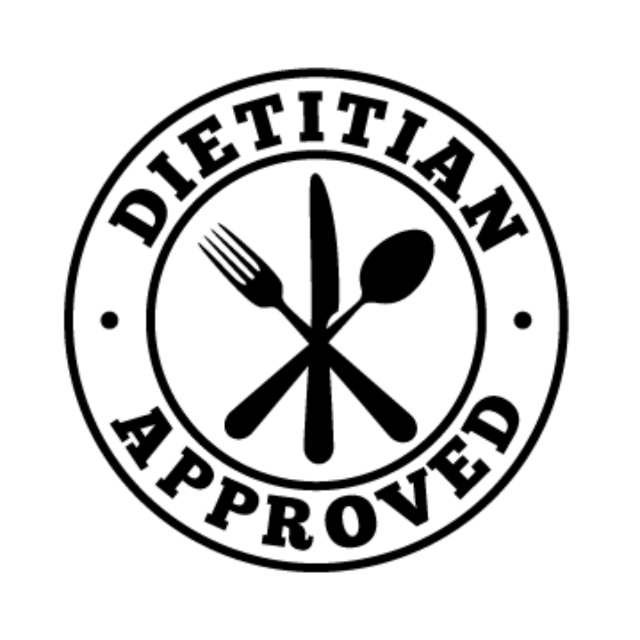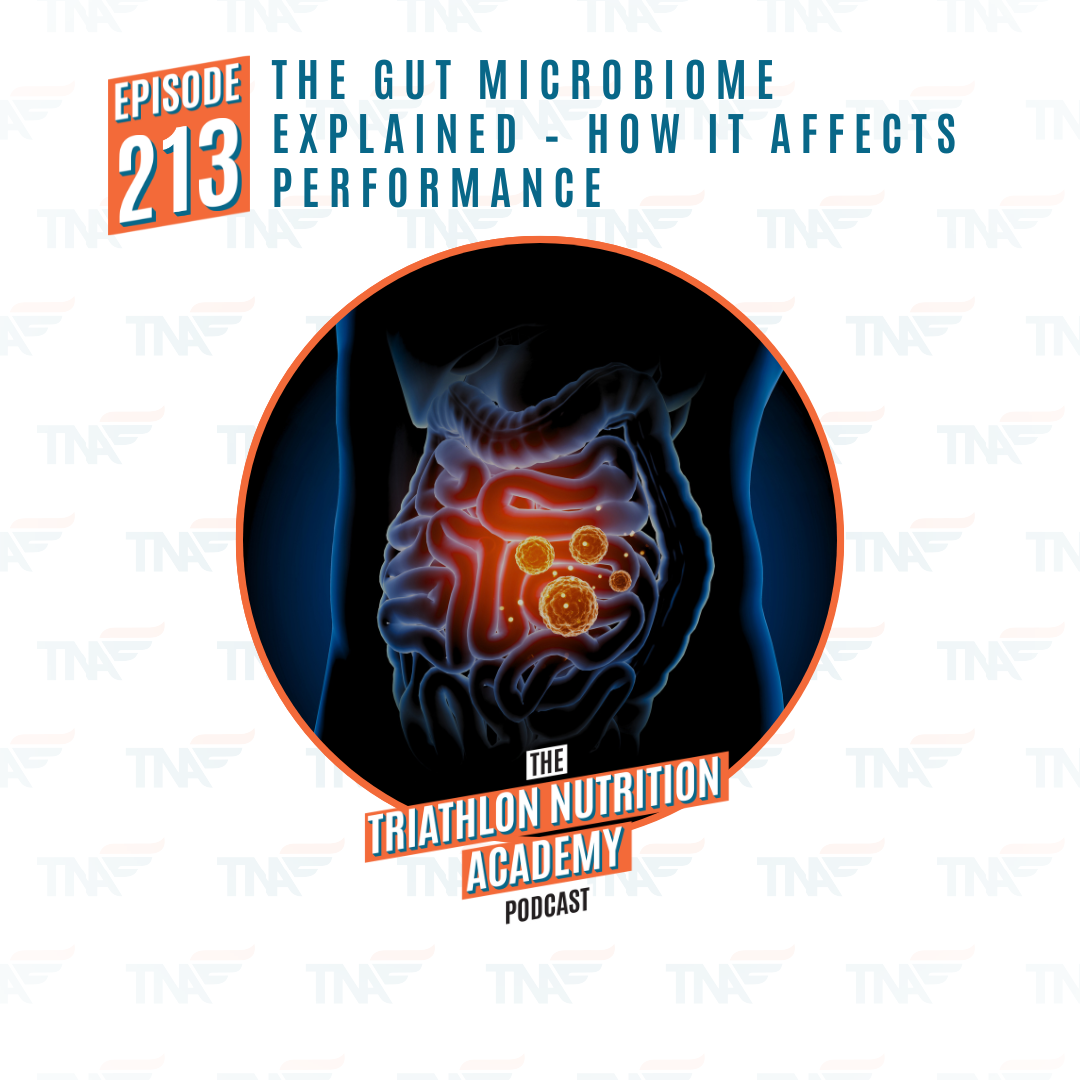Episode 213 -The Gut Microbiome Explained – How It Affects Performance
Episode 213 – The Gut Microbiome Explained – How It Affects Performance
Think gut health is just another wellness buzzword? Think again.
This week, I’m unpacking what the gut microbiome actually is, how it impacts your performance, and why it might be the reason you’re constantly bloated, fatigued or hitting the wall. I’ll walk you through what the science says and give you six simple ways to support your gut—no expensive supplements needed.
Links:
Check how well you’re doing when it comes to your nutrition with our 50 Step Checklist to Triathlon Nutrition Mastery
Start working on your nutrition now with my Triathlon Nutrition Kickstart course
It’s for you if you’re a triathlete and you feel like you’ve got your training under control and you’re ready to layer in your nutrition. It's your warmup on the path to becoming a SUPERCHARGED triathlete – woohoo!
Connect with me:
To learn more about the Triathlon Nutrition Academy, head HERE | dietitianapproved.com/academy
See behind-the-scenes action on Instagram: @dietitian.approved
Follow along on Facebook: @DietitianApproved
Join our FREE Dietitian Approved Crew Facebook group
Enjoying the podcast?
Let me know what you loved about it and what you learnt by tagging me @dietitian.approved on Instagram!
Subscribe & Review in Apple Podcast!
Are you subscribed to the podcast?
If not, today's the day! I'm sharing practical, evidence-based nutrition advice to help you nail your nutrition and I don't want you to miss an episode. Click here to subscribe to iTunes!
Now if you’re feeling extra warm and fuzzy, I would be so grateful if you left me a review over on iTunes, too. Those reviews help other people find my podcast and quality nutrition advice. Plus they add a little sparkle to my day.
CLICK HERE to review, select “Ratings and Reviews” and “Write a Review” and let me know what your favourite part of the podcast is.
You're awesome! Thank you!
Episode Transcription
Episode 213 - The Gut Microbiome Explained – How It Affects Performance
Welcome to the Triathlon Nutrition Academy podcast. The show designed to serve you up evidence-based sports nutrition advice from the experts. Hi, I'm your host Taryn, Accredited Practicing Dietitian, Advanced Sports Dietitian and founder of Dietitian Approved. Listen as I break down the latest evidence to give you practical, easy-to-digest strategies to train hard, recover faster and perform at your best. You have so much potential, and I want to help you unlock that with the power of nutrition. Let's get into it.
Taryn Richardson (00:00)
Welcome back to the Triathlon Nutrition Academy podcast. Today's episode was actually inspired by a question that came up in our TNA Alumni Power Hour sessions. We have these every week. I jump on Zoom with all of our alumni athletes and we talk about all things nutrition. It’s awesome and so much fun.
One of the athletes from the UK asked about the gut microbiome. He said he's seeing it everywhere at the moment. It's all over social media. He wanted to know whether it’s actually a thing or just another shiny object being shoved down our throats. Is there anything we need to do about it? He mentioned hearing about fermented vegetables and thought he needed to get amongst those.
I thought, this is a brilliant question. It was something we discussed in detail during Power Hour, but it is worth bringing to the masses.
The gut microbiome is absolutely fascinating. It is also one of the fastest evolving areas of research and is becoming more and more relevant for triathletes when it comes to performance.
Today I’m going to break it down. We’ll talk about what the gut microbiome is, the difference between key terms so you actually understand what people mean, what research is starting to show in endurance athletes, and what you can do to look after yours.
If you’ve ever wondered whether you should be eating more fermented foods, or if gut health might be one of the missing pieces in your performance puzzle, this episode is for you.
Before we get into whether you should be adding fermented veggies to everything you eat (side note: no, you shouldn’t), let’s step back and talk about what the gut microbiome actually is.
You’ll often hear microbiome and microbiota used interchangeably, but they’re not the same thing.
Your gut microbiota refers to all the tiny organisms that live inside your gut. They are mainly bacteria, but also viruses, fungi, and other microbes. Think of it as the cast of characters that make up your digestive system.
Your gut microbiome, on the other hand, includes not only those organisms but all their genetic material. It is the entire ecosystem they create and how it functions.
So, microbiota means the bugs themselves. Microbiome means the bugs plus their genes and everything they do.
The trillions of organisms inside your body, about two kilos worth, are essential for good health. They help digest certain fibres, produce vitamins and short-chain fatty acids, regulate your immune system (around 70% of which resides in your gut), and protect your gut lining from harmful invaders. They’re basically the bouncers keeping trouble out.
Scientists are discovering more every year. Honestly, it’s one of the most exciting fields of research right now, up there with female athlete research, because your gut flora is as unique as your fingerprint.
We know the modern diet has smashed the diversity of the gut microbiome. When dysbiosis occurs, meaning an unhealthy imbalance, it can affect bowel function (think IBS) and also lead to inflammation and autoimmune conditions such as rheumatoid arthritis and chronic fatigue syndrome.
You might have heard the gut called the "second brain." There’s a direct communication line between your gut and brain called the gut-brain axis. That means whatever’s happening in your gut can influence your mood, stress levels, sleep, and potentially even performance as an athlete.
When we talk about gut health, we’re really talking about keeping that ecosystem balanced and diverse.
Before you start spooning kimchi out of the jar like peanut butter, know this: gut health isn’t just about fermented vegetables or probiotic supplements. The goal is a diverse, balanced ecosystem, and that mostly comes from how you eat overall, not a once-off serve of sauerkraut on a burger.
Now that we know what the gut microbiome and microbiota are, let’s look at what research tells us. This field is exploding. Scientists are learning how the microbes in our gut affect digestion, immunity, mood, and energy levels.
The science is still evolving, but it’s clear that gut health has a real impact on how well you train, recover, and perform as an athlete.
A healthy, diverse microbiome helps maintain a strong gut barrier, keeping the right stuff in and the wrong stuff out. When that barrier is compromised, unwanted materials can leak into your bloodstream and trigger inflammation.
For endurance athletes, the combination of long hours, heat, dehydration, and limited blood flow to the gut is the perfect storm for irritation. If your microbiome isn’t in good shape, that stress gets amplified.
Some studies show certain bacterial species are more common in endurance athletes. One, Veillonella, feeds on lactate, the same lactate you produce in your muscles during hard training, and converts it into energy your body can reuse. It’s early days, but fascinating evidence that gut bugs might actually help performance.
We’ve also seen that endurance training can increase microbiome diversity, especially in athletes who eat plenty of fibre and carbohydrates. But the reverse is also true. Under-fuelling or following restrictive diets can reduce diversity, which is bad for health and performance.
That’s huge, because a lot of triathletes are under-fuelling and eating poorly. You might be hitting your macros, but if your diet lacks diversity, your gut is still missing out. Nutrition is more than carbs, protein, and calories. We need to be smarter than that.
There’s no magical gut health supplement that will make you faster. Research shows a healthy, balanced microbiome supports recovery, immunity, and energy metabolism, all key for triathletes. It’s not about chasing the latest shiny pill. It’s about fuelling consistently, eating well, and giving your gut variety to thrive.
If you need a starting point, check out my Triathlon Nutrition Kickstart Course at dietitianapproved.com/kickstart.
Let’s get practical. Six things you can do right now:
-
Eat a wide variety of foods.
Aim for at least 30 different plant-based foods each week. That includes fruits, vegetables, legumes, whole grains, nuts, seeds, herbs, and spices. Each type of fibre feeds different beneficial bacteria, helping build a resilient microbiome. -
Include prebiotic foods.
Prebiotics are fibres that feed your good gut bacteria. Think oats, garlic, onion, asparagus, bananas, and legumes. Include them regularly. -
Add probiotic foods.
Fermented foods like yoghurt, kefir, kimchi, sauerkraut, and real kombucha (not the fake sugary stuff) contain live cultures. They’re not a magic fix, and popping random probiotics won’t solve everything, but including these regularly can boost diversity. -
Fuel your training properly.
Under-fuelling is one of the fastest ways to upset your gut and immune system. Training on empty or not matching carb intake to training load can compromise your gut lining and lead to bloating or nausea. Fuel right, before and after sessions, to protect performance. -
Avoid drastic diet changes.
If you suddenly ramp up fibre or try a new diet, your gut will protest. Add changes gradually. Massive overhauls rarely work and can cause discomfort. Think small, consistent tweaks. -
Consider gut testing.
If you have ongoing symptoms or you’re a nerd like me, gut microbiome testing can offer insights. It analyses bacteria levels, pathogens, inflammation, and more. It’s pricey, so do your homework first. I’m currently doing one myself and will share results soon.
Gut health isn’t a buzzword. The science is clear: your gut microbiome plays a huge role in how your body functions and how you feel. Nutrition isn’t just about hitting macro targets. It’s about eating a wide variety of foods and taking care of the small things that make a big difference over time.
If you need help with your nutrition, work with a sports dietitian who understands triathlon, someone who can look at the whole picture, not just calories. Simply hitting macros won’t keep your gut microbes happy.
We’re better than that.
Thanks for tuning in this week. I’ll see you next time for more easy-to-digest triathlon nutrition nuggets.
Thanks for joining me for this episode of the Triathlon Nutrition Academy podcast. I would love to hear from you. If you have any questions or want to share with me what you've learned, email me at [email protected]. You can also spread the word by leaving me a review and taking a screenshot of you listening to the show. Don't forget to tag me on social media, @dietitian.approved, so I can give you a shout out, too. If you want to learn more about what we do, head to dietitianapproved.com. And if you want to learn more about the Triathlon Nutrition Academy program, head to dietitianapproved.com/academy. Thanks for joining me and I look forward to helping you smashed in the fourth leg - nutrition!



